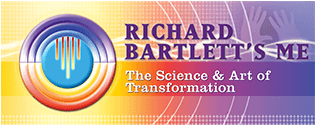
“If you’re going through hell, keep going!”
Winston Churchill
Depression
Millions of people are battling depression but with the right help, sufferers need not despair. One in 10 of us are clinically depressed right now, with symptoms like feeling low, anxiety, trouble sleeping and loss of interest in life or even sex.
Physical problems such as headaches, joint pains and loss of appetite are common too. Depression is treatable and can be totally cured. Sometimes all it needs is family support or a change in lifestyle. Covid19 is creating a situation that is affecting more and more people in this way. See Covid19 page.
More and more people are turning to alternative / complementary treatments such as Energy work, reflexology, aromatherapy, mindfulness techniques etc, along with herbal remedies like St John’s Wort. The Samaritans, charities such as MIND and local church groups can also help.
Sadly, many people don’t seek help at all. Nearly half of all sufferers never tell their GP, 28 % believe nothing can be done to help, a quarter feel they should cope themselves and 13% are too ashamed to mention it,
The main thing to remember is not to suffer in silence, always go to your GP and ask for help with the condition and also consider alternative / complementary therapies to support the help you are receiving through your GP.
The services I provide can help the person understand the problem that they have and as with the mindfulness technique, I am able to help the person be in the NOW moment, living in the present, focusing their brain, their attention and their senses on the NOW moment.
When you have become accustomed to being in the NOW you can go right into the NOW moment and if you can do that, your brain waves change. That is one of the reasons why people benefit from the services I provide and how I help people with depression.
In fact, the service I provide which gives a fresh up-to-date way of looking at and of understanding this common age-old problem, actually treats depression and along with the various other benefits from what I do during a session a person feels much better as they start with my help to pull themselves out of the darkness they have been experiencing.
Going onto anti-depressants is no longer the harrowing ordeal it once was. Modern drugs have far fewer side-effects than in the past. Having helped to deal with the possible causes of the depression while taking them, will ensure that the need for taking them will be minimal.
One drug, duloxetine, launched recently even seems to relieve both physical and psychological symptoms, with patients reporting a significant improvement in the quality of life.
However, drugs are not always the best option. Psychotherapy, which helps people think more positively and tackle past problems or Counselling with help from the appropriate expert in the issues being experienced, can be very effective.
Some people just need to see the Light… as they suffer from a seasonal affective disorder or SAD, caused by lack of sunlight in winter. Daylight triggers the hypothalamus gland in the brain to produce mood-boosting serotonin, so the lack of daylight during the winter months means we have lower levels of this feel-good chemical in our system.
http://www.sada.org.uk
About 8% of us suffer from SAD and feel depressed are constantly tired and crave stodgy food. Three out of four sufferers can be cured by spending time in front of a special light box.
 There is evidence a healthy diet could help you feel brighter.
There is evidence a healthy diet could help you feel brighter.
Eat foods rich in amino acid tryptophan which helps to make serotonin.
It is found in oats, fish, turkey, chicken, beans, eggs and cheese.
Omega-3 fatty acids also help make serotonin and are found in oily fish and seeds which few of us eat enough of.
Aim for two servings a week of oily fish, such as salmon or mackerel and snack on seeds.
You could also try taking an oil rich in Omega-3 like Udo’s Choice Ultimate Oil Blend from health food stores or a fish oil supplement such as Equazen Eye-Q.
All the B vitamins are vital for good mental health, so eat plenty of brown rice, green veg and whole grains to get the benefits.
Always check with your GP before taking any supplements that might interfere with any medication you are taking.
Exercise can make a significant difference to mood so it is advisable to persevere with it as far as you can. Walks in the park or along the coast, stroll to the shops instead of driving. Perhaps take up swimming or cycling anything that raises your heart rate and helps you break a sweat.
Exercise triggers the release of endorphins and studies show an hour of exercise three times a week can improve your mood as much as anti-depressants. If you are well enough, try dancing, kickboxing or take a fitness class.
Check with your GP first before doing anything too strenuous.
However, for many people, depression is far more serious. Some can’t even get out of bed without feeling suicidal but incredibly, half of all people with depression who go to their GP are not correctly diagnosed.
Sometimes consultations are too brief or doctors fail to spot the varying causes of the condition, patents perhaps do not inform the doctor of all the symptoms they are experiencing.
Other times the causes are obvious, such as serious life traumas, illness, bereavement, divorce, redundancy etc.
More information about help groups on the additional help page of this website:
Anxiety
What Is Anxiety
Anxiety is something we all experience from time to time. You may be about to go into hospital for an operation.
You are scared about what it will be like. How much will it hurt? Will it be successful? could it go wrong?
you are so worried that you can’t even concentrate enough to watch a tv programme.
You sleep badly the night before, become irritable with other people and don’t feel like eating.
Usually, everyone will understand that you are in a stressful situation and will be sympathetic if everything goes well the anxiety will go away.
Covid19 is creating an anxiety epidemic as more and more people are starting to worry and become stressed due to this sudden change in our life. See Covid19 page.
Anxiety can be useful. If you are a bit nervous before taking an exam you may find that it makes you extra alert and you do well. If you get too worried you may find that you can’t think and let yourself down.
There is no shame in getting help and talking about your fears, currently one in every six people on average experience a mental health problem each week. According to the Mental Health Foundation 22% of women and 15% of men feel anxious all or most of the time.
Is your anxiety affecting your life? does it prevent you doing things, affect your relationships? affect your sleep? prevent you enjoying life? if it is then your anxiety needs to be addressed.
The Fight or Flight Response
Most of us can recognise the feeling of anxiety and know it is something to do with fear. To understand what causes it, imagine that you are about to be attacked.
As soon as you are aware of the threat your muscles tense ready for action. Your heart beats faster to carry blood to where it is most needed, the muscles and the brain.
You breath faster to provide oxygen which is needed for energy. You sweat to stop your body overheating, your mouth becomes dry as your digestive system slows down producing less saliva.
Other complex reactions take place. All this is kept going by the production in the body of chemicals called hormones, including one called adrenalin.
This automatic reaction to a threatening situation is known as the fight or flight response because it equips us to fight or escape from an enemy.
Once the danger is past everything goes back to normal. You may shake as the muscles relax.
Many of the signs and symptoms of anxiety are physical, a racing heart or palpitations, feeling fidgety or restless, shaking, feeling tired and rundown, not being able to switch off, insomnia, stomach issues such as diarrhoea or IBS, feeling dizzy or unreal, tingling in your hands and feet, dry mouth, feeling sick and nauseous, experiencing headaches, tension in your muscles.
Mental signs of anxiety can be finding it hard to focus or concentrate on what your doing, a sense of dread or doom, not being able to stop worrying, thinking very negatively, being on high alert or edgy, increased levels of irritability.
Causes of Anxiety
Unfortunately, we react in the same way to situations which feel threatening but which we cannot deal with by fighting or running away.
The situation could be talking to someone you don’t know at a party, getting into debt or taking a driving test.
If we don’t use up the energy in our bodies we can find ourselves remaining mentally overactive and physically tense. It is when we are in this uncomfortable state that we think of ourselves as being anxious.
Nearly everyone can imagine a situation they would feel too anxious to face. It may be speaking in public, leaving a marriage or taking a more responsible job. The effect is always the same, the anxiety limits our ability to get the most out of life.
We may remember past events which were frightening. We can even be affected by things which we don’t consciously remember. We can recover from distressing experiences if we are given the chance to express our feelings, perhaps by crying or yelling and are reassured and comforted during this period.
When we have not dealt with hurtful situations properly we carry them with us, then when something reminds us of them, again the memory does not have to be conscious, we feel the old feelings again.
When we visit the dentist, we may feel the fear which has built up during every previous visit. Being anxious can be a habit that you learn. If for example your parents always seemed to be worried, you may have felt that the world must be a frightening place.
All the thoughts and feelings can switch on the fight or flight response and keep it switched on. Physical causes such as poor nutrition, drug abuse or exhaustion may also bring about the fight or flight response.
Genetics can also play a role, however, just because you have an anxious parent that doesn’t necessarily mean you too will become anxious.
It’s easy to see how peoples life experiences can be at the root of anxiety. Perhaps your parents went through a difficult divorce and it caused you to feel uncertain about the future and insecure in yourself. Maybe you had an overly critical father, now you constantly beat yourself up and never feel your doing well enough.
These experiences in life can stay with you and shape your thoughts, feelings and beliefs. Lifestyle can also be a factor, do you burn the candle at both ends? do you feel like you need half a bottle of wine a night to relax? How much sleep do you get? is your diet healthy? how much alcohol and caffeine do you consume? do you exercise enough? and so on …
The Effects of Anxiety
Anxiety effects our bodies and our minds. Tense muscles cause unpleasant headaches and pain, a tight feeling in the chest and pain in the neck, shoulders or back.
The digestive system slows down. A dry mouth makes it hard to swallow. We may have unpleasant feelings in the stomach which can cause vomiting.
The fight or flight response closes the muscles which control going to the toilet. When our system tries to adjust to normal it may overreact causing diarrhoea.
Rapid, shallow breathing can make us feel weak, faint or dizzy. We may feel the same disturbing thoughts going around and round in our head. It is as if there is a voice in our heads constantly reminding us of what we are frightened of.
The feeling of being unable to switch off our minds can make it hard to concentrate on anything. It can also stop us from sleeping. Anxiety can easily make us feel exhausted.
We may use drugs such as caffeine (in tea and coffee) nicotine (in tobacco), alcohol or even stronger drugs on prescription or from an illegal source, to feel more relaxed or energetic. They may work in the short term but long term the disruptive effect on our bodies can cause more stress.
What you can do
The most important thing to do is to learn how to control the fight or flight response. There are three ways to do this, by adjusting breathing, by relaxing muscles and by emptying your mind of distressing thoughts, replacing them with positive and peaceful ones.
These methods are quite straightforward and can be learnt from CDs, books or attending relaxation classes if you prefer to work in a group.
Alternative / Complementary Therapies that promote calmness, relaxation and peace of mind will be of great benefit, especially if they also help you to understand yourself and why you are experiencing this problem.
As with helping those with depression one of the services I can provide as with the mindfulness technique, will help the person go into the NOW moment which changes their brain waves to a more relaxed way of being. I am able to help the sufferer pull themselves out of the fearful place they have found themselves in.
Complementary Therapies work alongside conventional NHS treatment and do not interfere in any way with any other help you are receiving from your hospital or GP. However, you should always inform the Therapist of any treatment or medication you are receiving.
Some examples are counselling (with the right therapist for you, someone you can open up too), energy work, acupuncture, homoeopathy, reflexology, aromatherapy, massage and so on. There is nothing mysterious about these therapies, in most cases, they have been used successfully for thousands of years.
They are seldom available through the NHS and therefore have to be paid for privately.
Counselling can help you to understand your difficulties and give you support to make lifestyle changes. Possibly learning other skills to handle difficult situations related to the problem causing the anxiety, such as assertiveness, standing up for yourself etc.
Other therapies such as Psychotherapy, Hypnosis etc are more concerned with understanding and coming to terms with past events.
Herbal remedies can be effective in helping to ease stress and tension and keep you calm. The herb “valerian” is known as natures tranquilliser and is recommended for nervous tension and anxiety.
It is always best to consult your doctor before taking any herbal remedy if you are already on medication. Aromatherapy can also be very useful in promoting a sense of inner calm.
Lavender and jasmine are good for relaxation and ylang-ylang is especially good for phobias. Dab the oils onto a hanky to inhale them or blend with a carrier oil such as sweet almond oil and apply to pulse points such as wrists and neck.
Self help can include having relaxing baths using Himalayan or Epsom bath salts to relax the muscles, going for a lunch time walk, having an early night, reading a good adventure book for escapism, learning to cook healthy meals, chatting to a good friend, learning to meditate or relax, taking deep breaths, writing your worries down to express them and understand them, then destroying them afterwards as a symbolic way of letting them go, exercising in nature, being more physical to burn off the adrenaline and release tension from the body. Try and do 30 minutes of moderate exercise five days a week.
Be kind in the way you internally talk to yourself, if you hear yourself being self critical for example then change that language for a healthier more positive version, be your own best friend. Old habits can be broken and new positive ways of thinking can be learnt in this way. Do something you enjoy for fun, just for you, treat yourself. It will help boost your self esteem and reduce your anxiety. Take you or your neighbours dog for a walk, get outside and play football, get creative with crafts or take up cycling for example.
Learn to say NO to people, stop being a people pleaser, stop taking on too much it leads to burn out and resentment. Say that you will check your diary and get back to them, rather than instinctively agreeing. Then you have time to think about whether you want to do what ever it is before committing yourself to it.
Imagine what could go right, train yourself to look at the positive aspects of the situation rather than the negative ones. Visualise the situation going well, picture yourself being calm, confident and smiling or even laughing as you think about the experience.
Learn to ground yourself by connecting with mother earth, there are many grounding techniques available on line, in books, on apps and so on …. the simplest to use is visualising being a tree with your feet and legs becoming the roots reaching down to the centre of the earth. Your body is the trunk of the tree and your arms and hands are the branches and the leaves reaching up to the sky. You can visualise golden energy flowing own the leaves, branches and trunk of the tree all the way down to the centre of the earth.
This grounding exercise helps you to get out of your head where all your problems are and fully into your body. It raises your vibration so you can get into your heart frequency instead. The golden energy can help you flush your negativity down through your legs into the planet. This can be a very relaxing experience and possibly even emotional as you connect with mother earth more profoundly.
Challenge yourself to face your fears, that way we learn that the situation is not actually a threat and we can survive it. We start trusting ourselves and our confidence grows. Start by taking a small step in the direction of what makes you anxious. If you have a fear of lifts then go up just one floor with a loved one to support you and build from there. If you fear spiders then start by looking at a picture of one, then once you have become more comfortable with that progress to seeing a spider in a container and so on. Anxiety is reduced by taking action to overcome it.
Anxiety Care Helpline 0208 478 3400 Monday and Wednesdays 10am-3pm or visit
- Anxiety and depression are different conditions but are not mutually exclusive and often concur with each other.
- Stressful life events and ongoing physiological stress have been shown to increase inflammation and hence disrupt gastro-intestinal function (via disruption to microbiome and increased permeability of gastro-intestinal tract). These dysfunctions are associated with anxiety disorders and depression
- The way in which stress is perceived has a greater effect on inflammation than the stress itself (if stress is viewed as negative this increases inflammation), therefore interventions to alter stress perception including meditation and mindfulness should be considered
- Nutritional interventions include supporting anti-inflammatory pathways, a healthy microbiome and integrity of the gastro-intestinal tract.
- Meditation/mindfulness – this is one of the best ways to reduce tension and anxiety and support a healthy mind. However when we are busy it is one of the things that tends to get pushed to the back of the queue and people forget to do it or are just not interested.
- Mindfulness-based stress reduction has small positive effects on depression, anxiety and psychological distress. Mindfulness doesn’t have to take much time, you can just do simple breathing exercises, there are many different ways to do this but a simple one is 4-4-8. This is where you breathe in for the count of four, hold for four and breathe out for eight, doing this for a minute each day has been shown to reduce the symptoms of anxiety.
- You can also use an app for directed meditation or mindfulness if you want to explore this further. There are many apps available, some popular ones are Calm and Headspace.
- Exercise – exercise is important for both mental and emotional wellbeing as it can increase feel good endorphins as well as improving resistance to stress.
- Be Grateful– gratitude journals have been shown to help improve measures of stress and depression. One study showed that people asked to journal five things they were grateful for that had occurred in the past week were 25% happier than those who didn’t or journaled negative emotions.
- Acts of kindness – one thing which has been strongly shown to improve our mood and wellbeing are acts of kindness. Practicing kindness also has a profound effect our own mental & physiological health, helping us to become happier and compassionate towards others.Being kind to others has been known to help boost our own immune system, slow down ageing, elevate our self-esteem and improve blood pressure.In many cases further help can be required such as energy therapies, counselling, psychotherapy and cognitive behavioural therapy.
Stop skipping breakfast!
Skipping meals can cause our blood sugar levels to drop, which not only triggers the stress response within our body but can result in irritability, anxiety, fatigue and even emotional outbursts.
The first meal of the day helps replenish our glucose stores after the overnight fast period. Research suggests those who miss their breakfast are more likely to feel depressed or anxious.
A study of 30,000 people found that those who skipped breakfast snacked on more sugar, fat and refined carbohydrates throughout the day and consumed fewer vitamins and minerals, this in turn negatively affected their mood.
Starting the day with a breakfast that provided a source of protein and fibre, will help your body stay nourished throughout the day. Foods such as porridge, natural yogurt with fresh fruit and seeds or wholegrain toast with poached eggs will provide the blood sugar stability we need.
-
Nutritional interventions
Nutritional interventions to be considered should include method to reduce inflammation, support the microbiome and support gastrointestinal integrity. Therefore, the health of the gut always should be considered for anyone who is experiencing depression:
Consider supporting a healthy bowel flora by:
- Take a live bacteria supplement – administration of probiotics and prebiotics has been shown to diminish the stress response during difficult tasks, improve the integrity of the intestinal barrier, and decrease inflammation.
- There is considerable evidence suggesting that these improvements among other effects may contribute to decreased anxiety‐ and depression‐like behaviours.
- Consuming fermented foods such as kefir, kombucha and sauerkraut.
- Consuming prebiotic (fuel for gut bacteria) foods and polyphenols from chicory, olives, baked apples and Jerusalem artichoke
Research has shown that nutrients important for repair and integrity of the digestive lining include:
- Vitamin A
- Vitamin D3
- L-Glutamine
- Zinc
Additionally, reducing inflammation should be considered:
Reduce inflammation by:
- Optimising gut health
- Reducing omega 6 fatty acids from meat, dairy and vegetable oils
- Increasing omega 3 fatty acids from oily fish, chia and flax seeds and dark leafy green vegetables
- Using anti-inflammatory foods such as turmeric (curcumin) and ginger
- Increasing vitamin E containing foods such as avocado
- Increasing Vitamin C-rich foods
General interventions
If you want to improve mood it is always important to consider:
- Foods which contain tryptophan e.g. walnuts, turkey, oats, bananas
- B6 and magnesium which convert 5HTP to serotonin
- Gut health, suspect leaky gut and / or dysbiosis and consider a probiotic
- Inflammation consider an anti-inflammatory diet as well as anti-inflammatory nutrients such as Omega 3 fats (as EPA), curcumin and ginger
- Support anti-oxidant status and reduce oxidative stress
- Is there a need for additional vitamin D3, zinc and methylation support (eg methylfolate and methylcobalamin)
- Cytoplan for quality supplements at reduced prices through this website: Please click on this link to purchase Cytoplan products.





